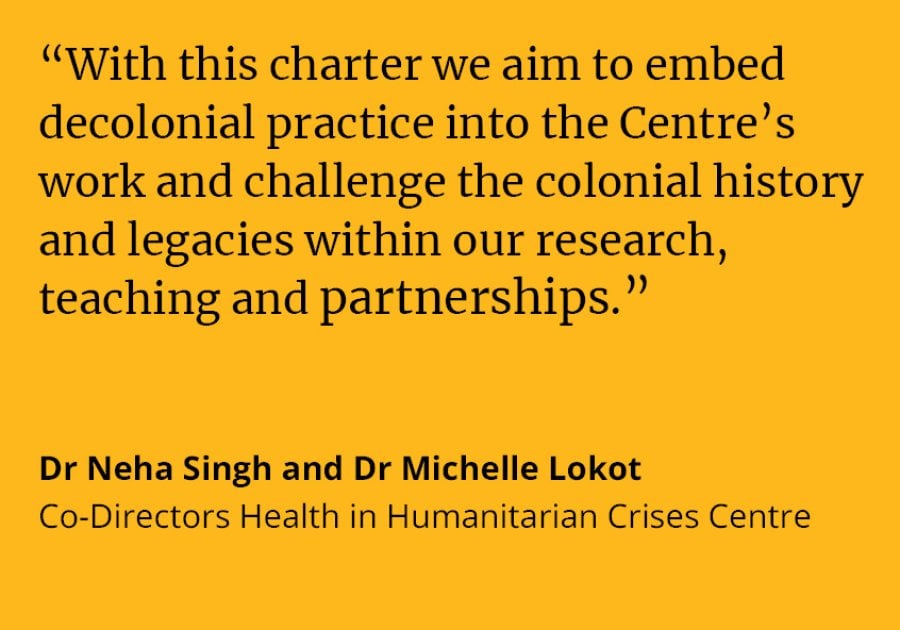
The overarching goal of the HHCC Charter and related Implementation Guidance is to embed decolonial practice into the work conducted at the Centre, and challenge the colonial legacies that continue to impact efforts to improve health in humanitarian settings. The charter represents a set of concrete commitments and corresponding actions to be regularly discussed and updated within the HHCC community. The Implementation Guidance outlines how these commitments can be practically actioned. These are living documents, which HHCC will review and update on a yearly basis based on feedback from HHCC members and stakeholders.
To our knowledge, this is the first Charter and Implementation Guidance of its kind, i.e. for a humanitarian health-focused centre in an academic institution in a high-income setting. The development of these documents was informed by mixed methods research. Initially, a scoping review of current practical guidance on decolonising global/humanitarian health research, teaching and practice was carried out. Next, rapid qualitative research was conducted with internal HHCC members and external HHCC donors and collaborators to understand the barriers and facilitators to decolonising as perceived by Centre members and stakeholders. Finally, internal HHCC members reviewed and discussed the findings and the draft Charter during design workshops and online consultation opportunities. Further information on the research methodologies and key findings can be found here.
The HHC Charter and accompanying documents were developed by FAIR Network representatives Amber Clarke, Dr Katharina Richter and Sali Hafez in collaboration with HHCC Co-Directors Dr Neha Singh and Dr Michelle Lokot. This work was funded by an LSHTM/Wellcome Institutional Strategic Support Fund and funds provided by the LSHTM Executive Office through the FAIR x LSHTM commissioning process. Dr Althea-Maria Rivas joined the project as an expert consultant providing expertise in critical, feminist and decolonial theoretical frameworks.
If you enjoyed this article and would like to build a career in global health, we offer a range of MSc programmes covering health and data, infectious and tropical diseases, population health, and public health and policy.
Available on campus or online, including flexible study that works around your work and home life, be part of a global community at the UK's no.1 public health university.
